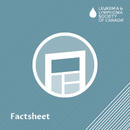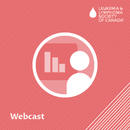Resource Library
Showing 41 to 50 of 324 results
Caring for your child diagnosed with a blood cancer can feel like your whole world is collapsing – but of course, collapsing is not an option for you. Spending time, as early as possible, on getting help with any mental health concerns is time well spent to strengthen your support of your child.
Get an overview of tests for blood cancers; understand what different lab and imaging tests are used for; learn about the healthcare professionals who do these tests; and how to prepare for tests.
This type of leukemia affects larger lymphocytes, with granules (small grains) that are visible. It can develop slowly (chronic) or progress quickly (aggressive), and affects both men and women, average age of 60 years.
Loss of appetite is a common side effect of cancer and your treatment. This means you may not feel hungry, not want to eat, or have no taste for food. It can lead to weight loss that could negatively impact your health and quality of life. It’s important to eat well during your cancer treatment so you don’t experience malnutrition.
B-PLL is a rare and often aggressive cancer. B-PLL often evolves from a more slow-growing B-cell cancer such as chronic lymphocytic leukemia (CLL). It’s a type of PLL with cells that are large; these cells are not normally found in the blood.
B-cell ALL is a sub-type of acute lymphoblastic leukemia (ALL). About 88% of children with ALL, and 75% of adults with ALL, have B-cell ALL. It is a fast-growing (aggressive) type of blood cancer.
SMZL is a rare, slow-growing (indolent) B-cell subtype of non-Hodgkin lymphoma. SMZL is one of three subtypes of marginal zone lymphoma, and it often involves the spleen, bone marrow, blood, and abdomen.
In this "Innovation in Research" webcast recording, you will learn about the community of microbes (bacteria, fungi, viruses and their genes) living within our digestive tracts, known as the “gut microbiome,” and how it can play a role in blood cancer treatment and quality of life.
A mother talks about how her world turned upside down when her 7-year-old daughter was diagnosed with a blood cancer. Already juggling work and family, becoming a caregiver on top of it all felt overwhelming to her. This mom's self-care took a back seat as she focused her energy on the care of her sick child.
This video, told from the father's point of view, talks about the strains on himself, his wife, their child with cancer, and their other children.
He describes every hospital visit, every round of treatment as "a rollercoaster of hope and fear."
He describes every hospital visit, every round of treatment as "a rollercoaster of hope and fear."


